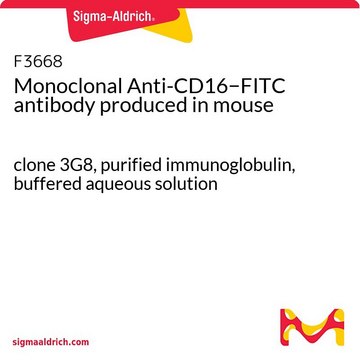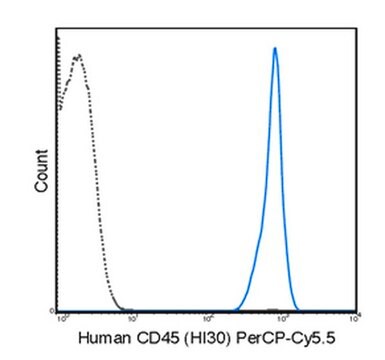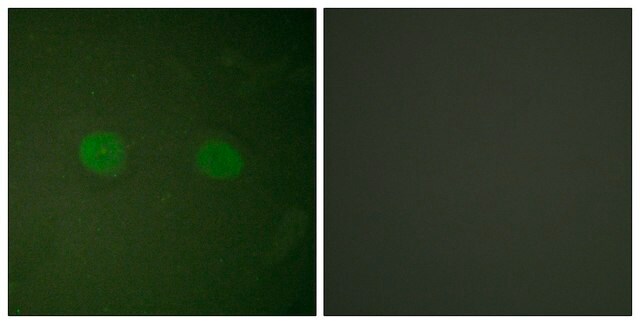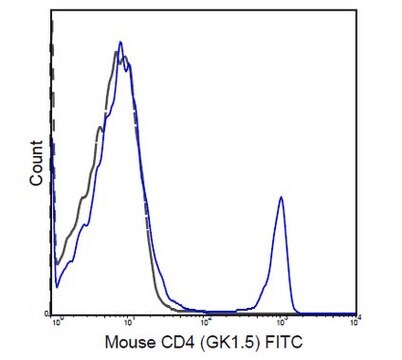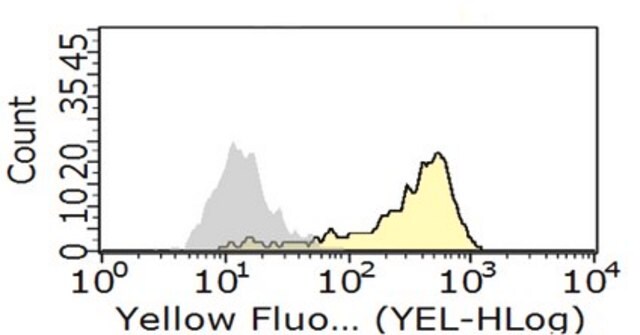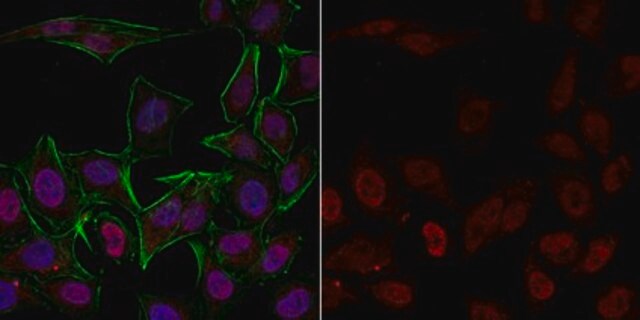MABC293
Anti-NLRP10 Antibody, clone 8H2
clone 8H2, from rat
Synonym(s):
NACHT, LRR and PYD domains-containing protein 10, Nucleotide-binding oligomerization domain protein 8
About This Item
Recommended Products
biological source
rat
Quality Level
antibody form
purified immunoglobulin
antibody product type
primary antibodies
clone
8H2, monoclonal
species reactivity
human
technique(s)
flow cytometry: suitable
immunocytochemistry: suitable
western blot: suitable
isotype
IgG2aκ
NCBI accession no.
UniProt accession no.
shipped in
wet ice
target post-translational modification
unmodified
Gene Information
human ... NLRP10(338322)
Related Categories
General description
Immunogen
Application
Western Blotting Analysis: A representative lot from an independent laboratory detected NLRP10 primary epidermal fibroblasts transfected with a non-targeting control siRNA, and demonstrated a loss of signal in primary epidermal fibroblasts transfected with NLRP10-specific RNA (Lautz, K., et al. (2012). Cell Microbiol. 14(10:1568-1583.).
Flow Cytometry Analysis: 4 µg from a representative lot detected NLRP10 in 1X10E6 HeLa and Jurkat cells.
Apoptosis & Cancer
Apoptosis - Additional
Quality
Western Blotting Analysis: 1 mg/mL of this antibody detected NLRP10 in 10 µg of A431 cell lysate.
Target description
Physical form
Storage and Stability
Analysis Note
A431 cell lysate
Other Notes
Disclaimer
Not finding the right product?
Try our Product Selector Tool.
Storage Class Code
12 - Non Combustible Liquids
WGK
WGK 1
Flash Point(F)
Not applicable
Flash Point(C)
Not applicable
Certificates of Analysis (COA)
Search for Certificates of Analysis (COA) by entering the products Lot/Batch Number. Lot and Batch Numbers can be found on a product’s label following the words ‘Lot’ or ‘Batch’.
Already Own This Product?
Find documentation for the products that you have recently purchased in the Document Library.
Our team of scientists has experience in all areas of research including Life Science, Material Science, Chemical Synthesis, Chromatography, Analytical and many others.
Contact Technical Service